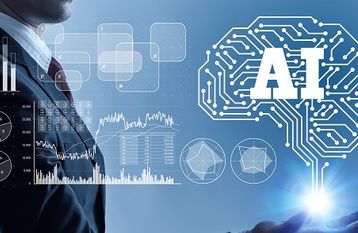The integration of Artificial Intelligence has become a game-changer, revolutionizing traditional talent acquisition and recruitment methods. This article explores the profound impact of AI in Talent Acquisition and how it helps streamline and enhance the hiring process.
Talent acquisition, the process of identifying and hiring skilled individuals, is crucial to organizational success. With the advent of AI, the recruitment landscape is undergoing a paradigm shift, introducing efficiency, objectivity, and innovation.
Automated Candidate Screening:
AI streamlines the initial stages of recruitment by automating candidate screening. Traditional methods involved manually sifting through resumes, a time-consuming task prone to biases. AI algorithms analyze resumes and applications, evaluating qualifications and experience, ensuring a more objective shortlisting process.
Enhanced Candidate Matching:
One of the significant challenges in recruitment is identifying the perfect candidate from a pool of applicants. AI employs advanced algorithms to match candidate profiles with job requirements, considering skills, experience, soft skills, and cultural fit. This leads to more accurate and effective candidate placements.
Chatbots in Recruitment:
Communication is key in the recruitment process. AI-powered chatbots are transforming the way recruiters interact with candidates. These virtual assistants engage with candidates, providing information about job roles, company culture, and application status. They streamline the communication process, offering applicants a more engaging and responsive experience.
Data-Driven Decision Making:
AI thrives on data, and in recruitment, this translates to data-driven decision-making. Analyzing historical hiring data, AI predicts candidate success based on specific attributes. AI in recruitment helps recruiters make informed decisions, improving the overall quality of hires and reducing turnover rates.
Diversity and Inclusion:
Addressing diversity and inclusion is a priority for many organizations. AI in Talent Acquisition can assist in mitigating biases by focusing on skills, qualifications, and experience rather than demographic factors. This ensures a fair and inclusive hiring process, fostering diverse and dynamic workplace environments.
Efficient Sourcing Strategies:
AI tools can scan online platforms, social media, and professional networks to determine possible candidates. This proactive approach enables recruiters to tap into a broader talent pool, discovering candidates who may not be actively looking for work. It enhances the efficiency of sourcing strategies, connecting recruiters with the right candidates at the right time.
Streamlined Onboarding:
Once the right candidate is selected, AI in Talent Acquisition continues to play a role in the onboarding process. Automated onboarding systems use AI to guide new hires through essential procedures, training modules, and company policies. This ensures a smooth organizational transition, optimizing the onboarding experience.
Challenges and Considerations:
While AI in talent acquisition, challenges exist. Ethical considerations are paramount, such as the responsible use of AI to avoid perpetuating biases and the need for transparency in automated decision-making processes. Striking a balance between automation and human involvement is crucial to maintaining a personalized and empathetic approach in recruitment.
Conclusion – AI in Talent Acquisition
The integration of AI in talent acquisition and recruitment is reshaping the hiring landscape. From automating mundane tasks to facilitating data-driven decision-making, AI brings efficiency, objectivity, and innovation to the recruitment process. While challenges exist, the potential for improving the quality of hires and fostering diversity makes AI an invaluable tool for modern HR professionals. As organizations continue to embrace the benefits of AI, the future of talent acquisition promises to be more dynamic and responsive than ever before.

